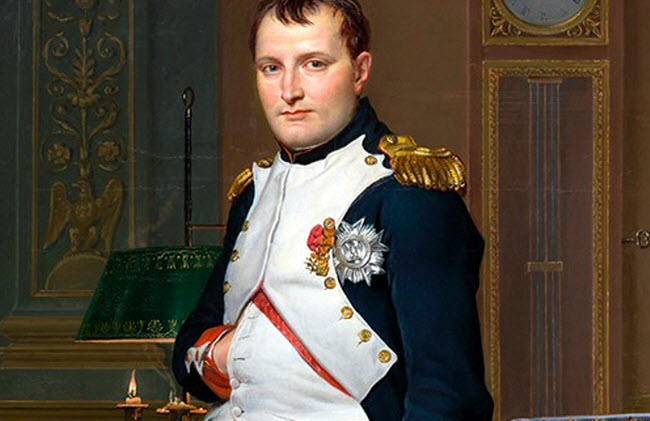Napoleon Bonaparte stands out as one of the most distinguished military leaders and astute politicians in history. Many regard him as a founding figure of modern France due to his sweeping reforms following his rise to power. Renowned for his unparalleled military strategies, Napoleon almost brought all of Europe under his control, thwarted only by international coalitions formed to topple him. Throughout his eventful and relatively short life, Napoleon fought nearly sixty battles, losing only seven—a remarkable record that is rarely achieved by military leaders at any stage of their careers. Besides his military conquests, Napoleon engaged in significant internal political battles, with his most notable achievement being the stabilization of France after the French Revolution. His reforms and laws, including those enshrined in the Napoleonic Code, established the legal foundation for much of Europe, with aspects of his code adopted by forty countries worldwide. Napoleon also led a French military campaign to the East, which settled in Egypt. Despite its many drawbacks, this campaign had substantial cultural and intellectual benefits, including the deciphering of hieroglyphics and the publication of “Description de l’Égypte,” a comprehensive guide to Egypt.
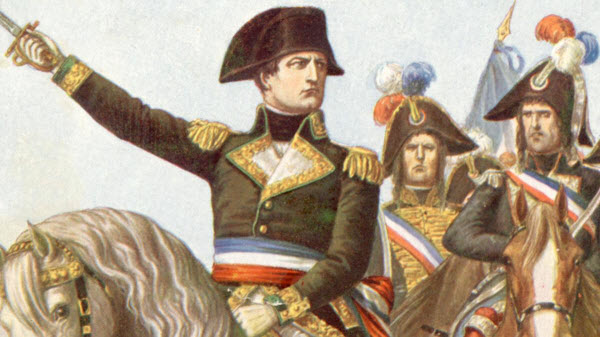
Early Life
Napoleon Bonaparte was born on August 15, 1769, in Ajaccio on the French island of Corsica. He was the second of eight surviving children of lawyer Carlo Bonaparte and his wife, Letizia Ramolino. Though his parents were minor Corsican nobles, the family was not wealthy. Shortly before his birth, France acquired Corsica from the Italian city-state of Genoa, which led to significant local resistance. Carlo Bonaparte supported the nationalists led by Pasquale Paoli, but when Paoli was forced into exile, Carlo shifted his allegiance to the French. This shift earned him a prestigious judicial position in Ajaccio in 1771, allowing him to enroll his sons, Joseph and Napoleon, in French schools.
Military Education
During his childhood, Napoleon attended school in France, where he learned French and developed a passion for military life. He studied at the Brienne military school for five years before moving to the Paris Military Academy in 1785. While at Brienne, his father passed away, thrusting Napoleon into the role of family provider. After graduating early from the academy with the rank of second lieutenant in the artillery, he returned to Corsica in 1786 and joined the Corsican resistance against French rule, aligning himself with Pasquale Paoli. However, conflicts soon arose between them, and when the Corsican Civil War broke out, Napoleon and his family moved back to France, where he joined an artillery battalion in Nice.
The French Revolution
France experienced intense political and social upheaval from 1789 to 1799, known as the French Revolution. Within three years of its outbreak, the monarchy was abolished, and France was declared a republic. In the following year, King Louis XVI, his wife Marie Antoinette, and numerous nobles were executed. Maximilien Robespierre emerged as the dictator of the Committee of Public Safety, and the period between 1793 and 1794, known as the Reign of Terror, saw up to 40,000 people executed.
Amid this chaos, ambitious military leaders like Napoleon saw an opportunity. The young officer supported the Jacobin Club, a radical leftist political movement led by Robespierre. Despite his connections to the Robespierre brothers and his promotion to brigadier general, the fall of Robespierre and his subsequent execution led to Napoleon being briefly placed under house arrest. In 1795, the revolutionary government known as the Directory took control, and Napoleon pledged his loyalty, returning to military service.
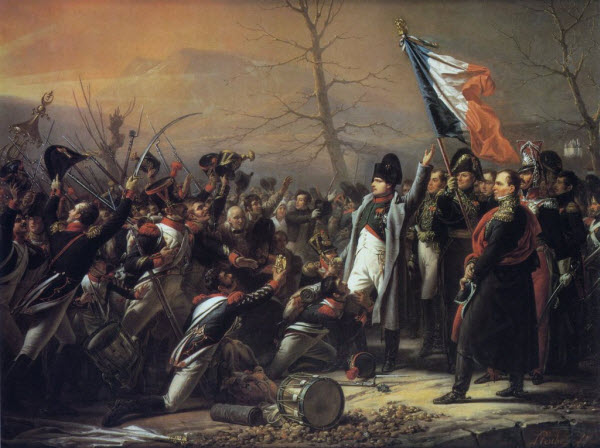
Rise to Power
After distancing himself from Robespierre, Napoleon aligned with the Directory in 1795. He gained prominence by saving the government from a royalist uprising in Paris, which led to his promotion to general and a trusted military advisor role. In 1796, Napoleon took command of the French army in Italy, a position he had aspired to. He revitalized and trained the ailing force, leading it to significant victories against the Austrians and greatly expanding French territory. His military successes cemented his reputation as an exceptional general, prompting the Directory to consider him for an invasion of England. However, lacking naval readiness, Napoleon suggested an invasion of Egypt instead to disrupt British trade routes to India.
The Egyptian Campaign and Return to France
On July 1, 1798, Napoleon and his army set sail for the Middle East, aiming to occupy Egypt and obstruct British trade. He achieved victory over the Mamluks and established control over Egypt. However, his campaign in the Levant, including the failed Siege of Acre, and the destruction of his fleet by Admiral Horatio Nelson in the Battle of the Nile on August 1, 1798, led to significant setbacks. With his forces stranded and his reputation suffering, Napoleon decided to abandon his army in Egypt and return to France. He was welcomed back as a popular military hero and participated in the coup of 18 Brumaire, which overthrew the Directory and led to his ascension as First Consul.
Napoleon’s Consolidation of Power
Following the coup, Napoleon was appointed First Consul and became the dominant political figure in France. His victory at the Battle of Marengo in 1800 against the Austrians solidified his authority and led to the signing of the Treaty of Amiens with Britain in 1802, which, although short-lived, temporarily halted hostilities.

The Napoleonic Wars
The Napoleonic Wars, a series of conflicts spanning from 1803 to Napoleon’s second abdication in 1815, marked the height of his military endeavors. In 1803, France sold the Louisiana Territory to the United States for $15 million, funding its wars against Britain, Russia, and Austria. Napoleon’s defeat of the Austrians at Austerlitz in 1805 was followed by further victories and territorial expansion. His creation of the Continental System in 1806 aimed to block British trade, but it faced challenges.
Following his defeat of the Russians at Friedland in 1807 and the signing of the Treaty of Tilsit, Napoleon expanded his empire further, placing loyal rulers in various European countries. Despite his domestic reforms and the establishment of the Napoleonic Code, which remains influential, his military ambitions often led to conflicts, including the disastrous Russian campaign of 1812.
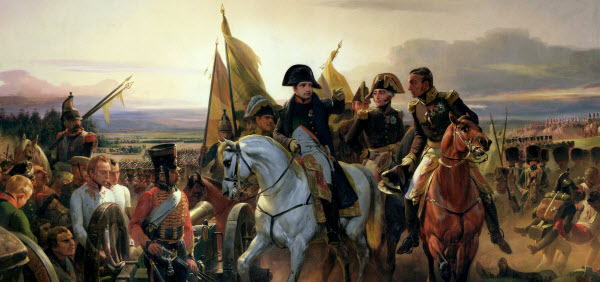
The Russian Campaign and Waterloo
In 1810, Russia withdrew from its agreements with France, prompting Napoleon’s invasion in 1812. Despite initial advances, the campaign faltered due to the harsh Russian winter and scorched-earth tactics. The loss of the majority of his army, compounded by ongoing conflicts in the Iberian Peninsula and defeats at the Battle of Leipzig in 1813, led to his downfall. In April 1814, Napoleon abdicated and was exiled to Elba.
Exile and Return
Napoleon escaped from Elba in March 1815, returning to France and briefly regaining power. His return prompted the formation of a new coalition of Austria, Britain, Prussia, and Russia. In June 1815, his forces were defeated at the Battle of Waterloo by the British and Prussian armies. Napoleon abdicated once more on June 22, 1815, and was exiled to the remote island of Saint Helena in the South Atlantic by the British.
Death and Legacy
Napoleon’s health deteriorated in 1817, and he suffered from stomach ailments that may have been cancer. By April 1821, he was bedridden and weakening. He died on May 5, 1821, at the age of 51. Twenty years later, his remains were transferred to France and now lie in the Hôtel des Invalides in Paris.
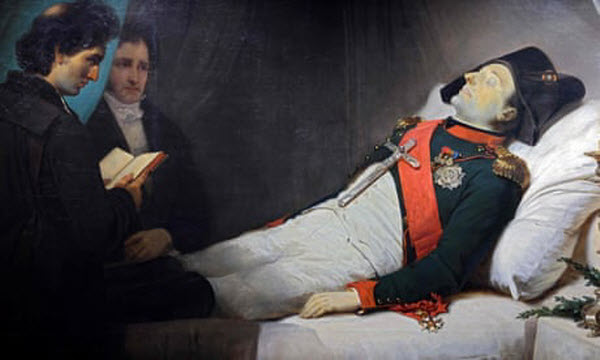
Family Life
Napoleon married Joséphine de Beauharnais in March 1796, but their marriage was annulled in 1810 due to her inability to bear him an heir. He then married Marie-Louise of Austria, with whom he had a son, Napoleon II, born on March 20, 1811. Napoleon also had several illegitimate children.
